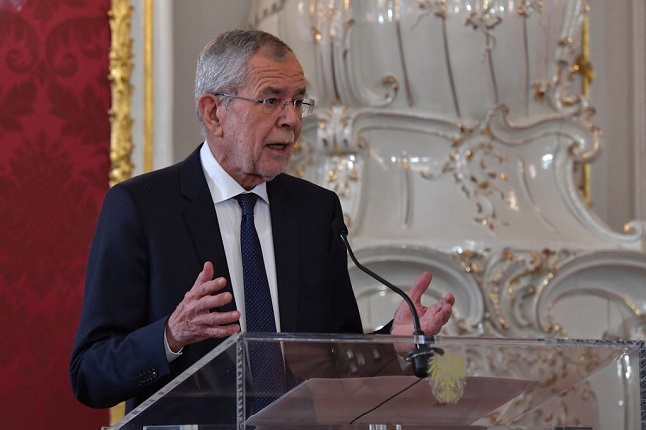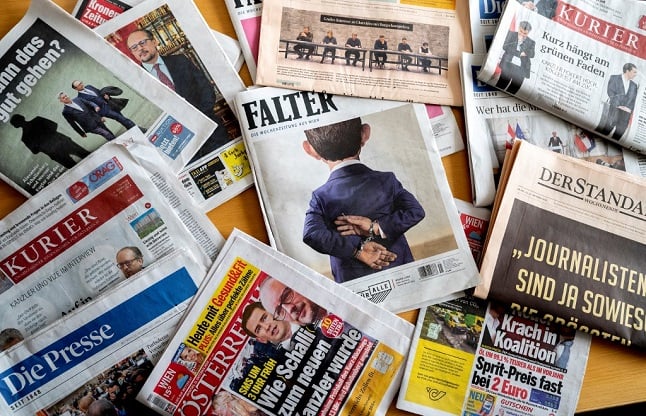The federal presidential election will take place in autumn 2022 as Alexander Van der Bellen (who represents the Green Party) reaches the end of his six-year term as president.
In May, Van der Bellen announced he will stand for a second term and he is tipped as a strong contender.
In the meantime, here’s everything you need to know about the upcoming election and what could happen later this year.
What does the Austrian President actually do?
The Federal President is the chief diplomat in Austria – essentially the head of state of the Austrian Republic.
The president is responsible for protecting democracy in Austria, providing moral support to the country and assisting in the integration of minorities into the political process, as well as swearing in and dismissing parliament.
To become the president of Austria, candidates should have an extensive political background and have a non-partisan (unbiased) approach to politics.
In some ways, Austria’s president is compared to the role of the Queen in the UK and any political power is often viewed as symbolic. For example, the president is not expected to intervene in the daily running of government, but can make an appeal in certain situations.
Austria’s current president, Van der Bellen, was inaugurated into the role on January 26th 2017 after winning the election in autumn 2016. Van der Bellen is a member of the Green Party and a former member of the Vienna State Parliament and Vienna City Council.
He has had more to do than the average president due to the frequent changes of government, having signed 152 swearing-in documents including appointing new chancellors, vice chancellors, ministers and state secretaries
What is the presidential electoral process in Austria?
Austrian citizens (aged 16 and over) vote in presidential elections every six years and Austria’s Federal President is eligible for two elected terms.
A presidential candidate must be an Austrian citizen, be eligible to vote in the National Assembly and be at least 35 years old on election day.
Members of ruling dynasties or from families that have reigned in the past are not eligible to run in the presidential election. This is to avoid a return to monarchy in Austria via the role of Federal President.
FOR MEMBERS: What’s in Austria’s vaccine mandate bill?
To become a candidate for the role of President, names must be submitted to the federal electoral authority at least 30 days before the election date, along with a fee of €3,600. Each nomination has to be signed by 6,000 eligible voters.
Following the vote, the elected Federal President is sworn in with an oath in front of the Federal Assembly. The oath states that the president will “faithfully observe the Constitution and all the laws of the Republic”.
Who could be the next President in Austria?
Some political figures have already spoken out in favour of Van der Bellen running for a second term, such as President of the Austrian National Council Wolfgang Sobotka (of the governing conservative People’s Party, ÖVP) and centre-left SPÖ leader Pamela Rendi-Wagner.
READ MORE: Who is Karl Nehammer, Austria’s new Chancellor?
There is some support within the Austrian People’s Party (ÖVP) and Social Democratic Party of Austria (SPÖ) that van der Bellen should be cleared for re-election without an opposing candidate, to offer the country some stability
However, Governor of Burgenland Hans-Peter Doskozil (SPÖ) has said the announcement of an opposition candidate would send a strong message to the Austrian population that the country is a “self-confident social democracy”.
And Van der Bellen himself hasn’t said whether he even wants to put himself forward for another term.
Additionally, there are rumours that Norbert Hofer, former leader of the far-right Freedom Party of Austria (FPÖ), could run for Federal President again (he was defeated by Van der Bellen in 2016). Hofer recently told Die Presse that if he does decide to become a candidate he will make the announcement nearer the time of the autumn election.



 Please whitelist us to continue reading.
Please whitelist us to continue reading.
Member comments